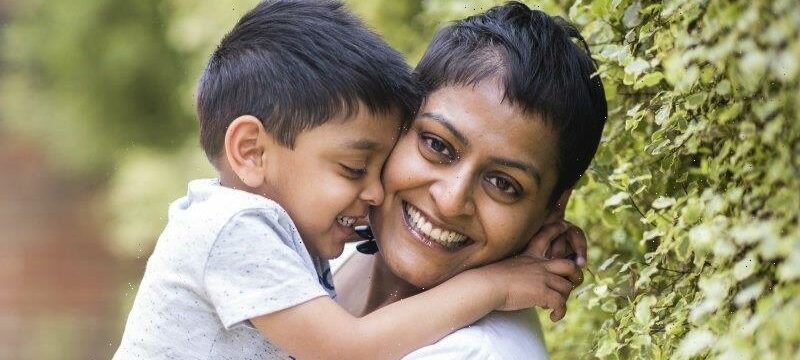Niti Nadarajah had just been promoted and was due to travel overseas for work in a couple of days when she experienced her second pregnancy loss.
Thinking she could handle it on her own, she decided to remain quiet about the miscarriage and got on with her job as a lawyer, with a team to manage, and parenting her first child.
Niti Nadarajah had two miscarriages before giving birth to her second son, Kai.Credit:Penny Stephens
“I told one person, just threw myself into work and lived in the cone of silence that surrounds pregnancy loss. I thought I was doing OK,” says Nadarajah, who was among the estimated 300 Australians who lose a pregnancy every day.
It was only months later, when someone asked her in a meeting if she was OK, that she realised the truth and that she needed to tell it.
“I paused and realised that I was not OK and shared with her what was going on for me. It ended up becoming an avalanche of sharing, anything and everything about my two losses, and [how] it was really hard – the silence that surrounds it,” she says.
After the second miscarriage, Nadarajah decided she could only handle one more attempt at having a second child. Fortunately, the third attempt was successful, and she gave birth to her son, Kai.
Like many would-be parents who experience a miscarriage – estimated to be at least 103,000 Australians a year – she was not referred for emotional support. Now, as a volunteer counsellor to others, Nadarajah says that for many prospective mothers and fathers, the emotional effects of a pregnancy loss are long term.
There’s an acceptance that it happens, and a week later, the woman is absolutely fine – we don’t need to think about it.
“People kind of don’t imagine it to be as big a thing as it is, because it happens early,” she says. (Miscarriage is pregnancy loss before 20 weeks.)
“But that’s enough time for you to start imagining what the child is going to look like, having them in your arms, all that kind of thing.”
Research by the only peer-support network for those who have miscarried, Pink Elephants, shows that most people who miscarry receive strong care for their physical health but have scant access to psychological support outside their own networks.
They often want to talk about what they have been through, but two in five face barriers to accessing professional support. Those surveyed were equally as interested in emotional support as they were in physical care.
Sam Payne, who founded Pink Elephants six years ago after experiencing multiple miscarriages, says women are offered “at least” comments: “At least it happened early; at least you know you can get pregnant.”
“There’s this pervasive attitude that miscarriage is common and something you should just get on with … an acceptance that it happens, and a week later, the woman is absolutely fine – we don’t need to think about it,” she says.
“Even with so many amazing, empathetic medical professionals, many women see it as something that needs to be medically managed; there are not enough pathways to emotional support.”
Researcher Dr Jane Carland said statistics on miscarriage in Australia are uncertain because beliefs such as “the 12-week rule” – that it’s best not to tell anyone you are pregnant before 12 weeks – are widespread, and many women who lose pregnancies do not disclose it.
“We don’t even know exactly what the number is because a lot of women don’t report miscarriage. I experienced a miscarriage and I never reported it; it’s one of those events where the silence around it is not serving us at all,” said Carland, a lecturer at the St Vincent’s Clinical School at the University of New South Wales.
“For me, the big issue is [that] miscarriage is under-researched, support is under-funded and we don’t even know the number of women who are experiencing this every day,” she said.
Resources for those who have miscarried are so difficult to find in Australia that many women seek help on overseas websites, according to research by the University of Melbourne’s Professor Meredith Temple-Smith.
She is part of a national team of experts who built the new website miscarriageaustralia.com.au to try to help people who have miscarried avoid longer-term mental health issues such as anxiety, depression and post-traumatic stress.
In the lead-up to Pregnancy and Infant Loss Awareness Day on Saturday, Temple-Smith, like Payne and Nadarajah, hopes wider discussion of miscarriage and funding for support services will mean fewer women are left alone to handle “the loss of somebody’s hopes and dreams”.
For many would-be parents, “they had imagined this baby, this child growing up, and that’s all gone,” says Temple-Smith. “It is a very poignant loss, and one we’ve brushed under the carpet for way too long.”
Peer support after miscarriage is available at pinkelephants.org.au and information can be found at the new miscarriageaustralia.com.au website.
The Morning Edition newsletter is our guide to the day’s most important and interesting stories, analysis and insights. Sign up here.
Most Viewed in National
From our partners
Source: Read Full Article

